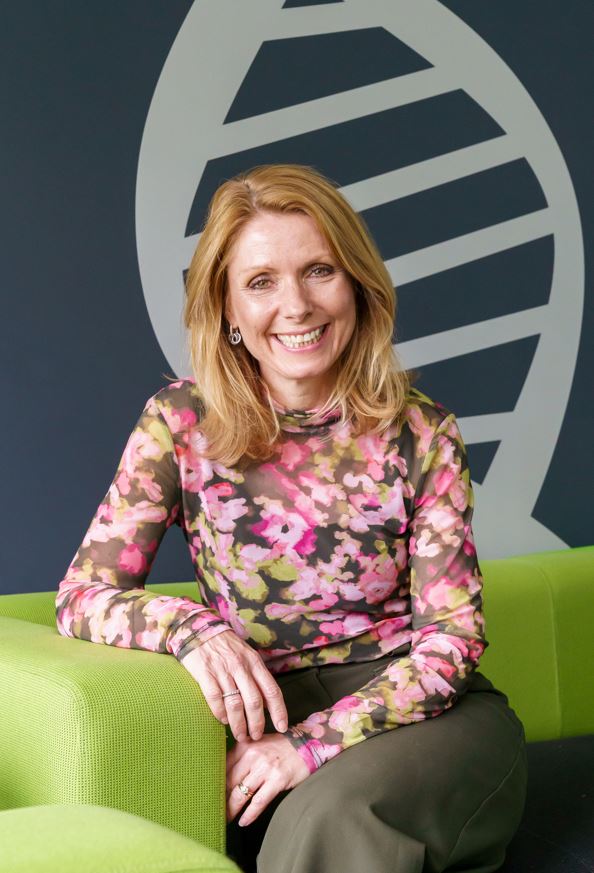A SUNDERLAND researcher is encouraging Muslim women across the city to accept their invites for cervical screening as part of this year’s Cervical Screening Awareness Week.
The awareness week runs from 17-23 June and aims to highlight the importance of cervical screening that helps save thousands of lives each year.
Dr Floor Christie-de Jong, Associate Professor in Public Health at the University of Sunderland is working to encourage Muslim women in Sunderland and the North East to take up cancer screening as part of a project funded by Cancer Research UK.
Cervical screening saves lives, but figures show lower uptake for screening in the UK among women in the Muslim community.
The three-year project, run jointly by the Universities of Sunderland and Glasgow, aims to reach out to women in Muslim communities with information to help them make informed choices.
“We know that cancer screening saves thousands of lives each year and, in some cases like cervical screening, it can even prevent cancers from developing in the first place.
“But we aren’t reaching all women in the Muslim community. Several reasons have been found for this lower uptake including not knowing about screening, feeling shy or being worried about seeing a male doctor.
“This Cervical Screening Awareness Week we want to urge all women and particularly those in our Muslim communities that attending a screening can help save lives.”
Project Lead Dr Floor Christie-de Jong, Associate Professor in Public Health in the University of Sunderland’s School of Medicine
This week the team has completed the first phase of the study, which has involved delivering workshops both online and in-person with Muslim women in Sunderland addressing potential barriers to women taking up screening opportunities.
Health education sessions have been led by healthcare practitioner Dr Anna Black, who has talked about what to expect from cervical, breast and bowel screening and things women might want to do to help them feel more at ease, such as requesting a female practitioner to carry out the appointment.
Another really important element of the workshops has been offering a religious perspective on cancer screening delivered by a female religious Muslim scholar, Alimah, Cerysh Sadiq. She has been able to explain about it in relation to their Muslim faith and how it is an accepted and important practice to undertake.
Videos of Muslim women’s experiences of cancer or screening have also been shared.
“We’ve held our final workshop this week. This was delivered in Sunderland with the support from Nahida Akhtar from the Sunderland Bangladesh International Centre. We are really pleased with how the workshops have been received.
“In total, around 250 women have attended the 16 workshops in the North East and Scotland and we’ve worked really hard to ensure they are culturally appropriate and engaging.
“The women who have attended have expressed how it has been a safe place for them to discuss concerns and how it has been delivered in a respectful and understanding way. The women have felt heard and their views valued.”
Dr Christie-de Jong
Women who have attended the appointments have completed questionnaires about their view of screening and it is hoped the data will show it has had an impact.
“Tackling inequalities is absolutely crucial to ensuring everyone, regardless of where they live or their ethnic background, has the best chance against cancer.
Michelle Mitchell, Cancer Research UK Chief Executive
“We know people from ethnic minorities may be less likely to respond to cancer screening invitations and hopefully this project will encourage more people to take up such opportunities if they wish to, and to find out what barriers prevent them doing so.
“Removing these barriers could save lives by preventing cancer from developing or catching it early when treatment is most likely to be effective.”
Every year, around150 people are diagnosed with cervical cancer in the North East*
Cancer Research UK’s work helped prove the value of cervical screening which now prevents thousands of deaths a year. The charity’s research also led to the development of chemotherapy drugs used today to treat patients with cervical cancer including carboplatin/cisplatin and paclitaxel/bevacizumab.
Visit cruk.org/research-into-cervical-cancer to find out more or donate.
















